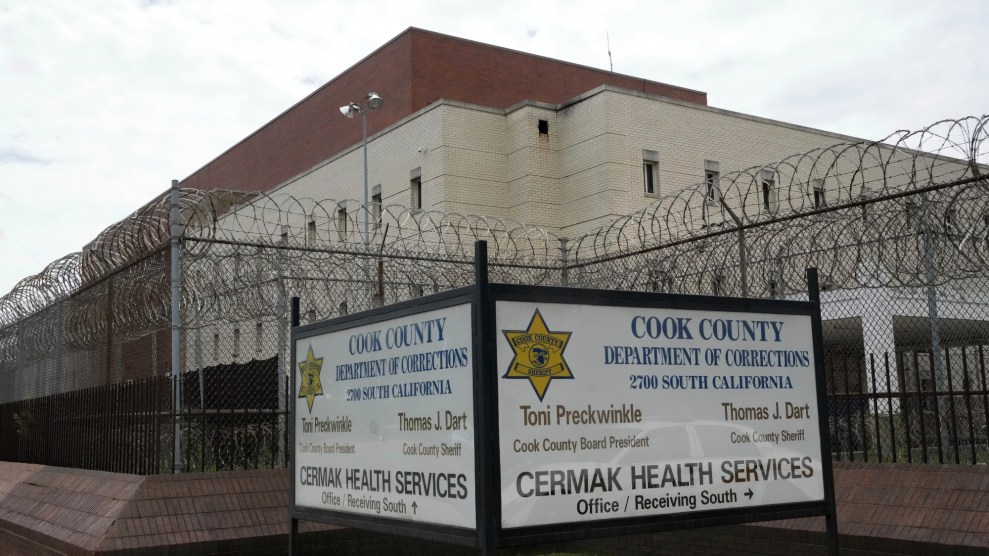“Sotomayor’s finances look a lot like the average person’s”—that’s the headline on a McClatchy story about President Obama’s Supreme Court nominee, a woman who owns (as the story notes) a $1 million Greenwich Village condo and is entitled to (as the story doesn’t note) $2.5 million in guaranteed pension benefits. While Sonia Sotomayor has some credit card debt, and she’s poorer than most of her potential colleagues on the court, she’s far richer than the average American.
The national media frequently refers to people like Sotomayor—people whose wealth means they lead vastly different lives than the actual average American—as “average” or “middle-class.” Often you get absurdities like the McClatchy story or Charlie Gibson suggesting that college professors making $200,000 in St. Anselm, New Hampshire are “middle-class.” (The median household income in the US is under $50,000.) This happens because of class bias, which may play a bigger role than partisanship in determining what the media covers.
Yes, the vast majority of people in the media are Democrats. But while media people are often Democrats, they’re usually a certain kind of Democrat—specifically a rich, college-educated Democrat in a knowledge-based job in New York or DC. Media people think college professors are average because they know a lot of college professors. They think owning $1 million Greenwich Village condos is normal because they live in New York and DC, where they know people who live in $1 million homes.
The hard truth is that people in the national media lead vastly different lives than the Joe Sixpack they’re always talking about. Many media people went to fancy colleges, many of them come from upper-middle-class backgrounds, and almost all of them are in a different socioeconomic class than the average American. They live in New York City and Washington, DC, centers of power and influence. They spend their days surrounded by incredibly wealthy and powerful people—their sources, their friends, and their neighbors. And they themselves make far more money than average Americans. Veteran reporters at the national newspapers like the Times, the Post, and the Journal make six figure salaries. Television reporters and anchors are rich by any reasonable definition of the word. Even young people in the media who aren’t making much money often have advantages other Americans are denied—degrees from top schools and connections to the rich, influential, and connected people who are their bosses.
On Thursday, E.J. Dionne wrote an excellent column arguing that “for all the talk of a media love affair with Obama, there is a deep and largely unconscious conservative bias in the media’s discussion of policy.” Dionne didn’t really try to explain why that bias exists. But it’s pretty clear the most important factor is class.
Since it’s not considered polite to talk about class in America, most people in the media are far less aware of their own class biases than they are of their constantly-scrutinized political biases. And since they’re less aware of their class bias, it creeps into their coverage.
Sympathy to the plight of a given group often depends on knowing a member of that group. But media people aren’t the people who would benefit the most from liberal policy prescriptions, and they don’t live or work around the people who would. Media people usually don’t have to worry about health insurance—their employers provide it. Few have been on welfare or food stamps. They care more about capital gains more than the payroll tax because they’re richer, and rich people own more stock, so it affects them more. They don’t know people in industrial unions like the UAW or the Steelworkers, because cars and steel aren’t made in DC and New York City. They don’t know people who work at Walmart, because there aren’t any Walmarts in DC or New York, either.
Of course, media figures do know people who would benefit from liberal social policy. And more often than not this is what conservatives are complaining about when they complain about liberal bias. You hear a lot about gay rights on television and read about it in the Times because media people know and live around gay people. You hear about religious pluralism on television and read about it in the Times because New York and DC (and rich people) are far less Christian and far less religious than the rest of the country.
What you don’t hear about is poor people and blue-collar people, because most media people don’t know any. It’s hard to live in Manhattan or Georgetown if you’re an average American—you can’t afford it. That makes it hard for the media to be sympathetic to policies that would benefit poor people and blue-collar workers. The key fact about rich media people is that they have benefited from American society. They’re the winners. The status quo has worked out just fine for them. That’s why radical changes to the status quo that liberals favor—things like the Employee Free Choice Act or single-payer health care or raising Social Security payments or taxing the rich more—get such short shrift in the media. Why would you seriously consider big changes to a system that has worked just fine for you?












